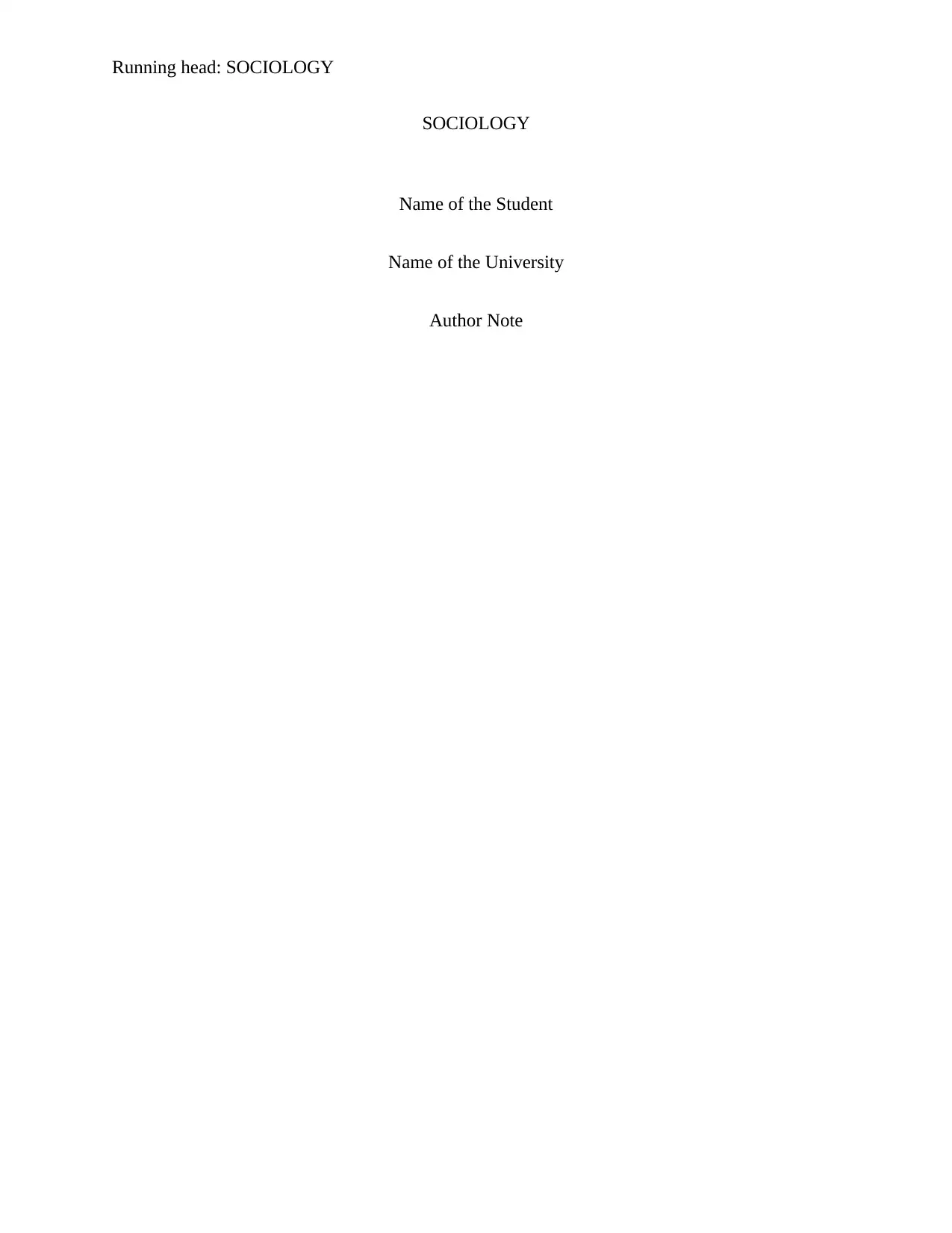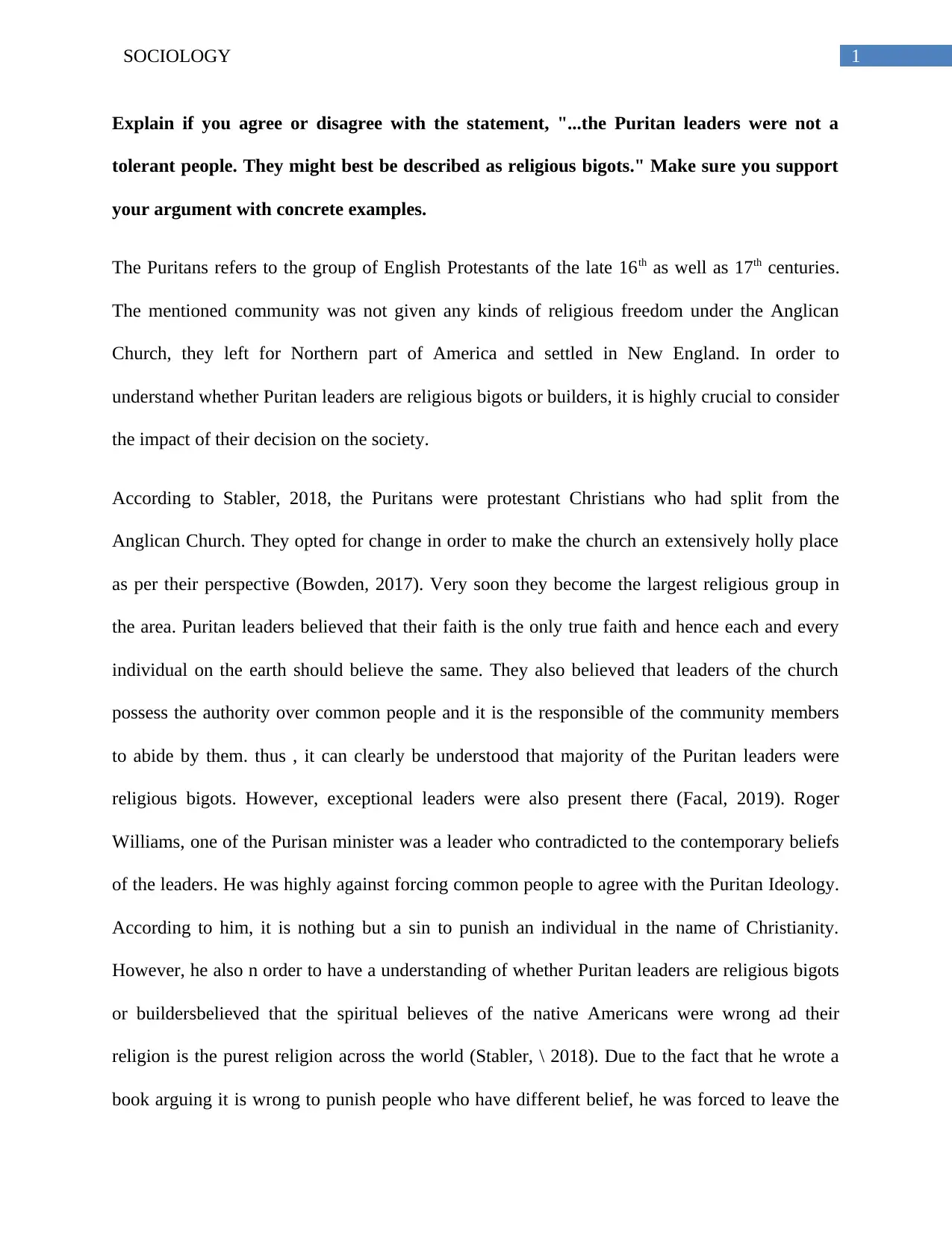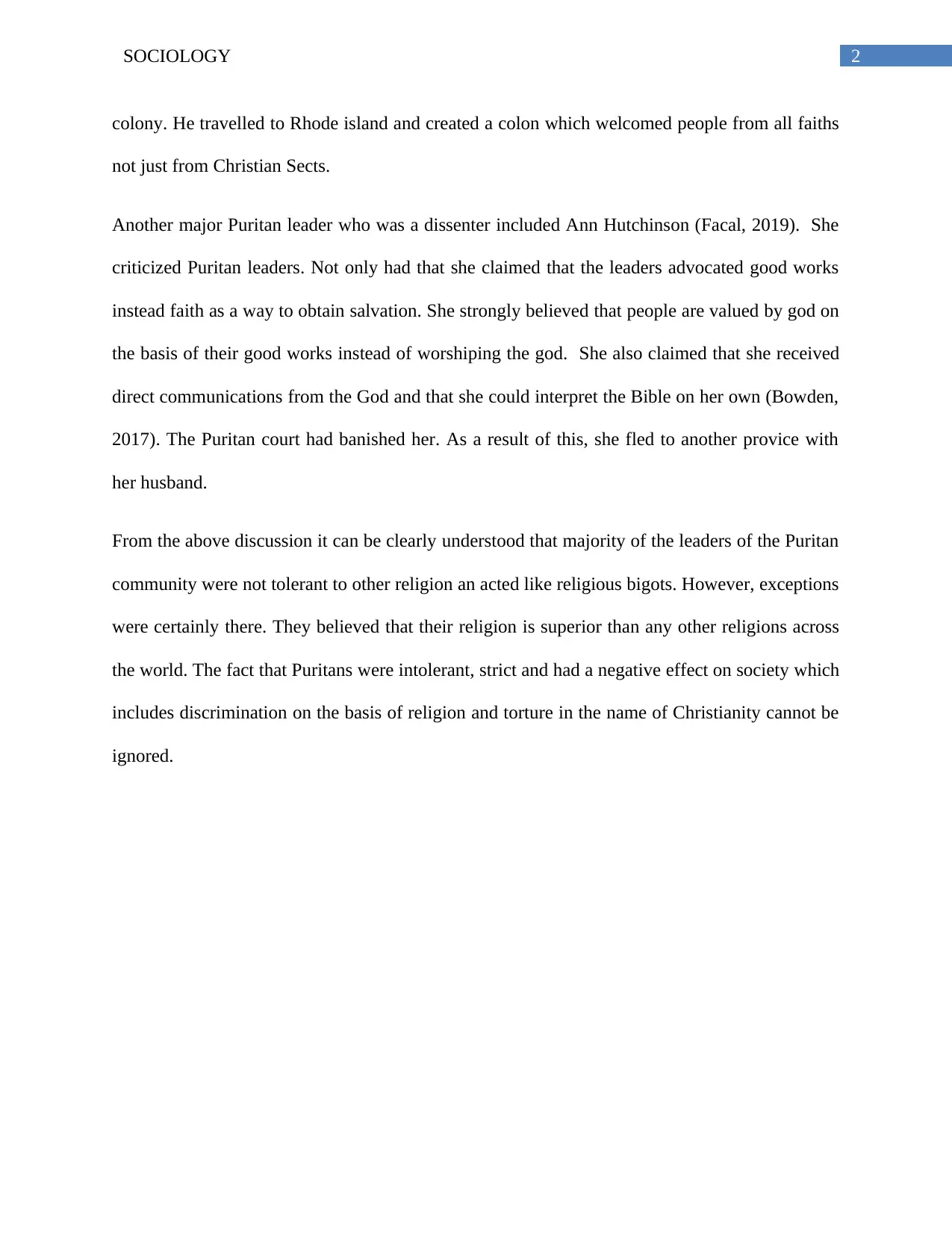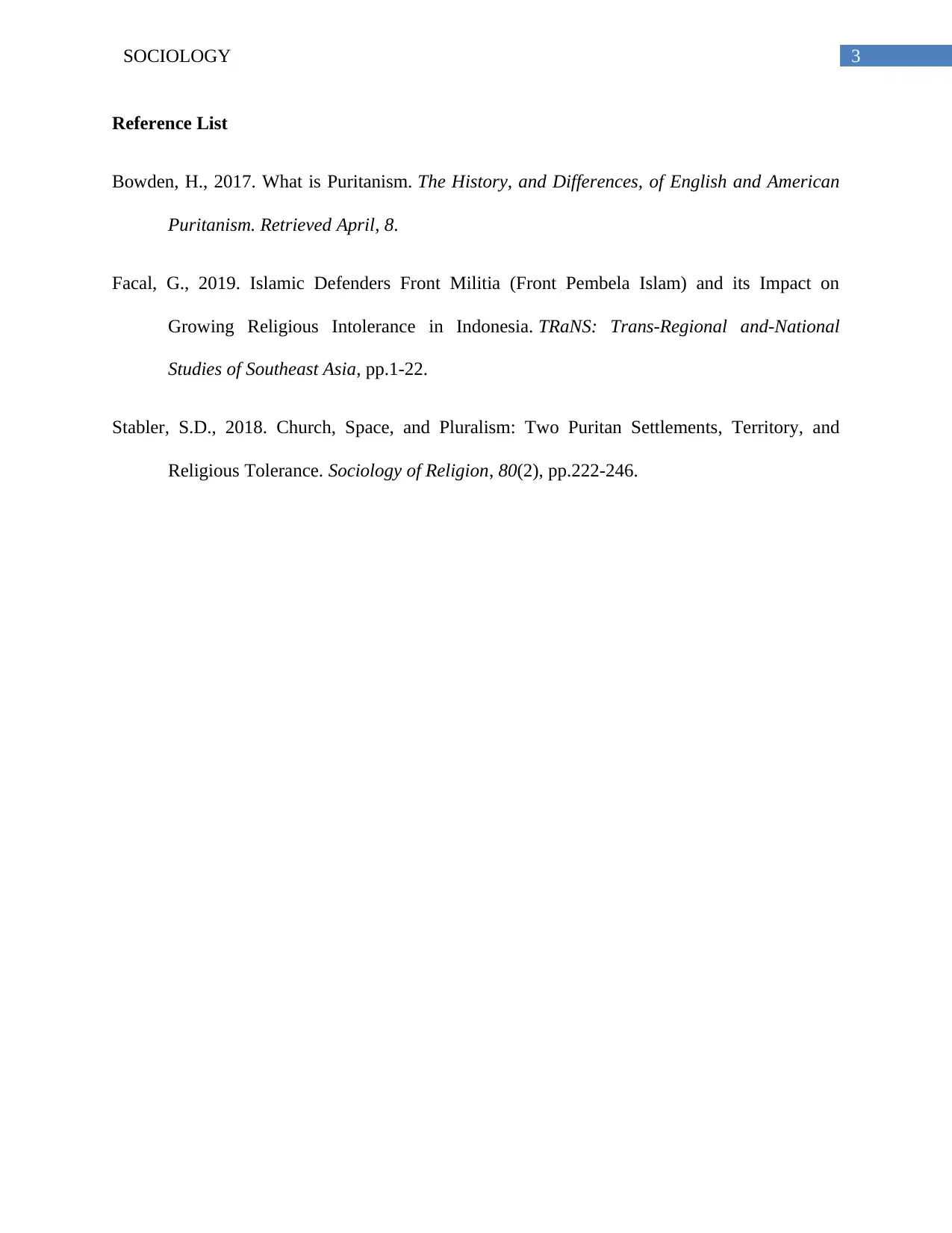Puritan Leaders: Bigots or Builders? A Sociology Essay
VerifiedAdded on 2023/01/05
|4
|729
|35
Essay
AI Summary
This essay explores the question of whether Puritan leaders were religious bigots, examining their intolerance and its societal impact. The essay begins by defining the Puritans as English Protestants of the 16th and 17th centuries who sought religious freedom in New England. It then analyzes the Puritans' belief that their faith was the only true one, leading to their intolerance of other religions. The essay highlights that while most Puritan leaders exhibited religious bigotry, exceptions like Roger Williams and Ann Hutchinson challenged these views, advocating for religious freedom and criticizing the leaders. The analysis concludes that, while some leaders demonstrated tolerance, the majority of the Puritan leaders were not tolerant, and that their strictness and intolerance had negative effects on society, including religious discrimination and persecution. The essay supports its arguments with concrete examples and references to relevant sources.
1 out of 4











![[object Object]](/_next/static/media/star-bottom.7253800d.svg)